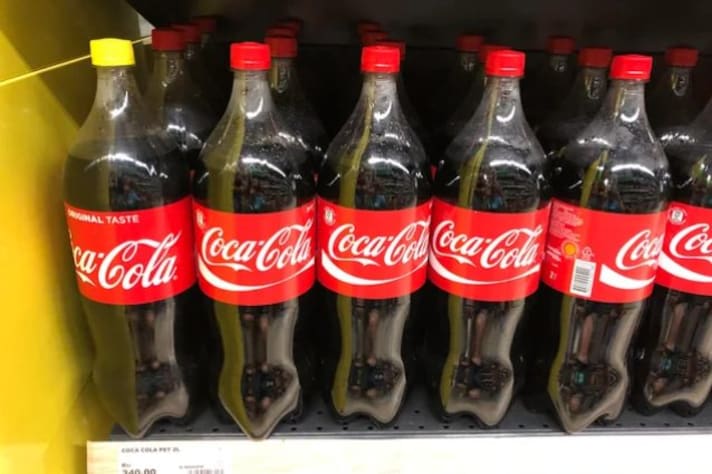
You’ve probably seen them: Coca-Cola bottles with a distinctive yellow cap instead of the usual red. These bottles often spark curiosity among consumers. What’s the deal with these yellow-topped Coke bottles? The answer lies in a combination of tradition, religion, and a bit of clever marketing.
Kosher for Passover: A Special Designation
The primary reason for the yellow cap on Coca-Cola bottles is to signify that the product is kosher for Passover. During Passover, observant Jews avoid chametz, or leavened grains, which include corn and corn syrup. Since regular Coca-Cola contains high fructose corn syrup, it’s not considered kosher for Passover. To cater to this, Coca-Cola produces a special batch of Coke sweetened with sucrose (table sugar) instead of corn syrup. The yellow cap is a clear, visual indicator that this version of Coke meets the dietary restrictions of Passover. It’s like a little nod of respect to centuries-old traditions, ensuring everyone can enjoy their favorite soda during the holiday.
The Taste Difference: Corn Syrup vs. Sucrose
One of the most interesting aspects of the yellow-capped Coke is the difference in taste. Many enthusiasts claim that the sucrose-sweetened version has a cleaner, crisper flavor compared to the corn syrup variety. This subtle change in sweeteners can make a significant difference in the overall taste experience. Some fans even seek out yellow-capped bottles year-round, preferring the taste of the Passover-friendly version. It’s a fascinating example of how a small tweak in ingredients can create a loyal following and even a bit of a cult status among soda aficionados.

A Seasonal Availability
You’ll typically find yellow-capped Coke bottles hitting the shelves in the weeks leading up to Passover, which usually falls in March or April. This seasonal availability adds an element of excitement and exclusivity. Much like limited-edition candies or holiday-themed snacks, the yellow-capped Coke becomes a sought-after item. Consumers who enjoy the taste or those who adhere to kosher dietary laws know to stock up when they see these bottles. It’s a bit like a special treat that comes around only once a year, adding to its allure.
The Broader Impact: Respecting Traditions
The introduction of yellow-capped Coke is not just about catering to a specific dietary need; it’s also a reflection of Coca-Cola’s broader commitment to respecting cultural and religious traditions. By making a simple change to their production process and adding a clear visual cue, Coca-Cola ensures that a wider range of consumers can enjoy their product. This practice highlights the company’s understanding of its diverse customer base and its willingness to go the extra mile to be inclusive. It’s a small change with a big impact, demonstrating how brands can respect and celebrate cultural diversity.
;Resize,width=767;)
